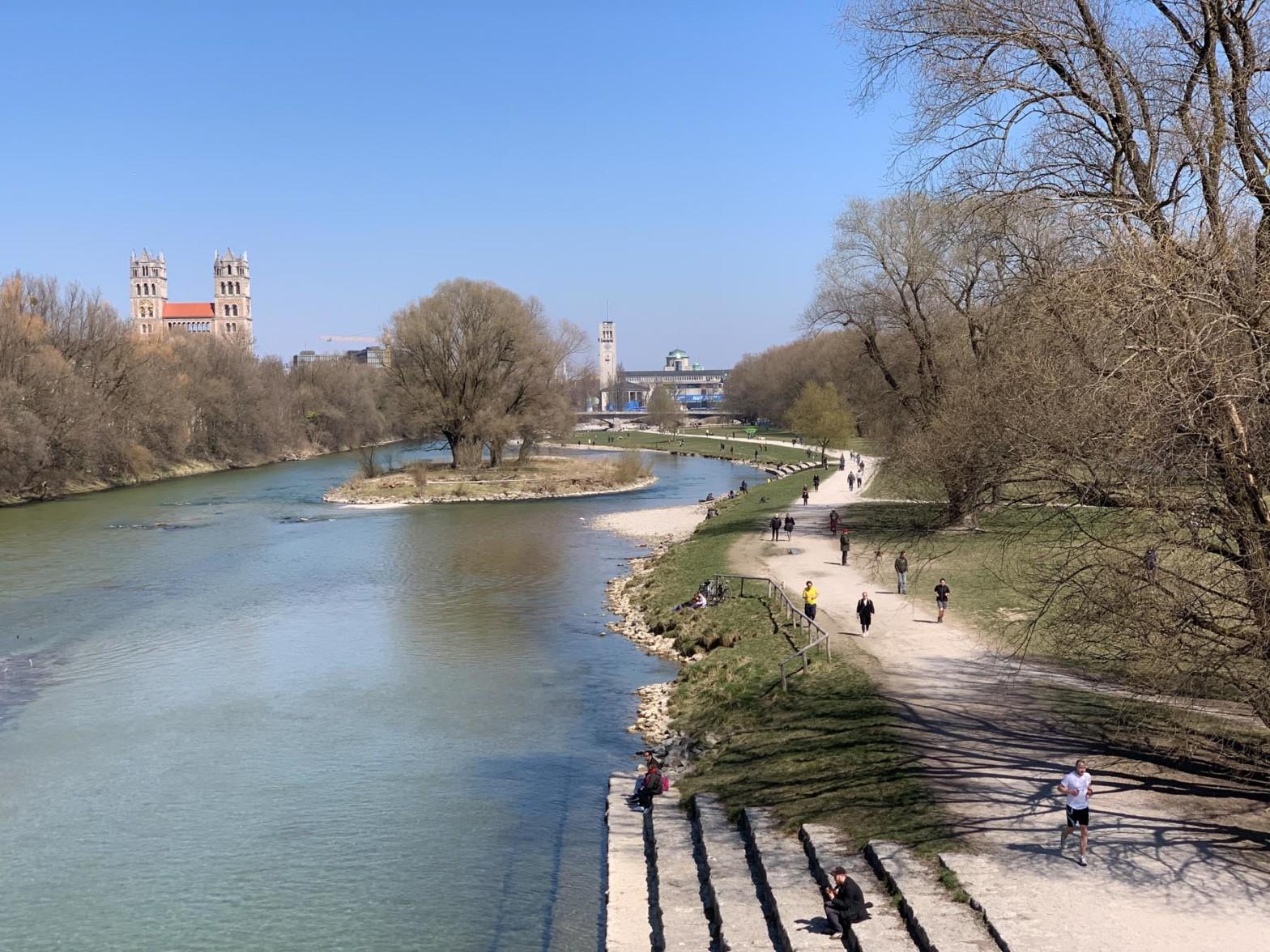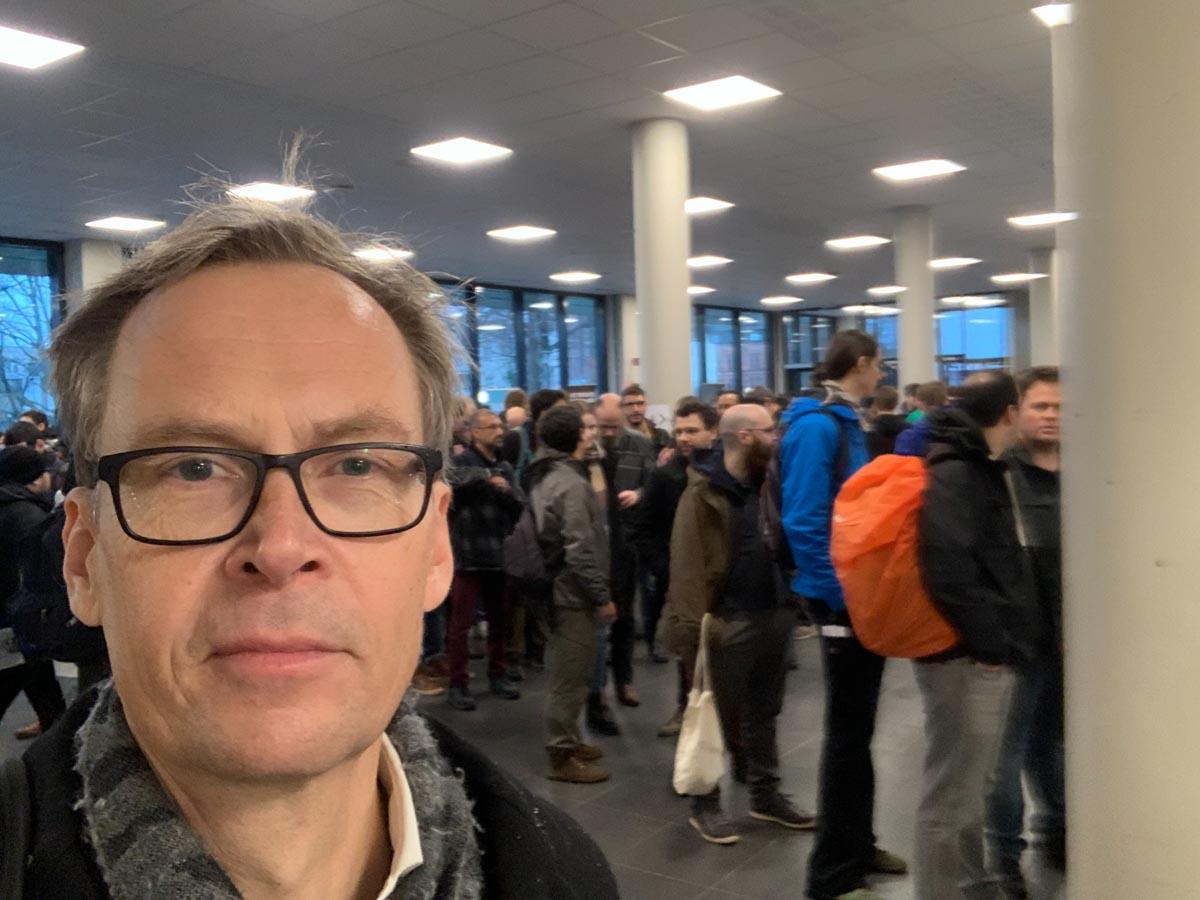Category Archives: Conferences/Events
Last Wednesday, I received an unexpected text: “Would you like to do some volunteering work? It involves speaking online to some kids for one hour about IT”. It was a classmate from high school.
MariaDB Foundation employees work remotely. Sure, we all meet together in one place a number of times a year so we don’t forget each other’s faces, but in 99% of our logged time, we are distributed around the globe. We are also not required to have a strict working schedule and this offers us the opportunity to say yes easily to these sort of events.
…
My favourite running track is full! Full of newbie runners, young and old. Mostly running alone, sometimes in pairs – but all following social distancing.
Social distancing can be coupled with emotional closeness. That’s at least what Sauli Niinistö propagates, the President of Finland. In line with these two phenomena – emotional closeness between isolated colleagues, and the boom of running as a source of energy during lockdown – we are launching the Solstice Run.
We want to inspire non-runners to run
As initiators, we want to inspire others to start running.
…
MariaDB deployments hold vast amounts of sensitive data such as intellectual property, state secrets, healthcare and financial records. HIPAA, GDPR and other government regulations require even more stringent protections and disclosures. Achieving post-compromise protection is seen as a necessary new tool available to DevOps teams.
At the first MariaDB Day in Brussels on February 2nd, Virgil Security’s CTO and co-founder Dmitry Dain presented a MariaDB demo based on the Virgil PureKit security framework that can protect stored passwords, PII and any other sensitive data even if the database had been breached – making it worthless to the attacker in the face of offline attacks (read more about security benefits in this blog post). …
Continue reading “Enable post-compromise data protection with MariaDB and Virgil Security’s PureKit”
MariaDB Foundation faces an unusual world, just like anyone else in these Corona times. Or perhaps, not quite. Here are some ideas for how to cope with a world inhibiting travel and social contact as we know it, from someone who has worked from home for 20 years, with colleagues also working from home.
First, stay upbeat. Humans are social animals, and we live off interactions with others. But Corona just dictates what type of social interactions we can have. It doesn’t inhibit social contact.
Second, stay connected.
…
FOSDEM gives energy. FOSDEM gives ideas. FOSDEM opens up opportunities, FOSDEM allows you to connect with old friends and colleagues. Hence, no big surprise that MariaDB Foundation attended FOSDEM, in order to promote Open Source and to get ourselves closer to the community.
Starting from a pre-FOSDEM dinner with Member of the European Parliament Nils Torvalds, over Open Source Diva Danese Cooper’s keynote about “Open Source is Art”, to the MySQL, MariaDB and Friends Devroom and Sunday’s MariaDB Day, concluding with OpenForum Europe’s meeting on Monday, my previous weekend was packed with encounters, discussions, and ideas around Open Source.
…
Our first MariaDB Day in Brussels is seeing some interesting presentations. Slides and videos are posted below.
This post will be updated as more slides and presentations become available.
You can also view the live video stream.
- MariaDB Observability – Peter Zaitsev (slides) (video)
- Why do I need columnar storage – Andrew Hutchings (slides) (video)
- MariaDB 10.5 new Galera features – a sneak peek – Seppo Jaakola (slides) (video)
- 5 Application-time periods in MariaDB – new syntax and table constraints: from PORTIONs to FOREIGN KEYs – Nikita Malyavin (slides) (video)
- InnoDB Status &
…
Galera Cluster for MySQL is a 100% synchronized cluster in regards to data modification operations (DML). It is ensured by the optimistic locking model and ability to rollback a transaction, which cannot be applied on all nodes. However, schema changes (DDL operations) are not transactional in MySQL, which adds complexity when you need to perform an upgrade or change schema of the database.
Changes made by DDL may affect results of the queries. Therefore all modifications must replicate on all nodes prior next data access. For operations which run momentarily it can be easily achieved, but schema changes may take hours to apply.
…
Galera R&D team is currently finalizing new features targeted for the next MariaDB 10.5 release. This presentation is a high level overview of the most prominent Galera clustering features under work, such as:
* Non Blocking DDL – for less turbulence of schema upgrades in a cluster
* Cluster Error Voting – for immediate recovery of node failures
* XA transaction Support – for executing XA transactions in a multi-master cluster
* GTID consistency – for consistent GTIDs in hybrid cluster / replication topologies
* Black Box – cluster hardening through more detailed diagnostics
…


